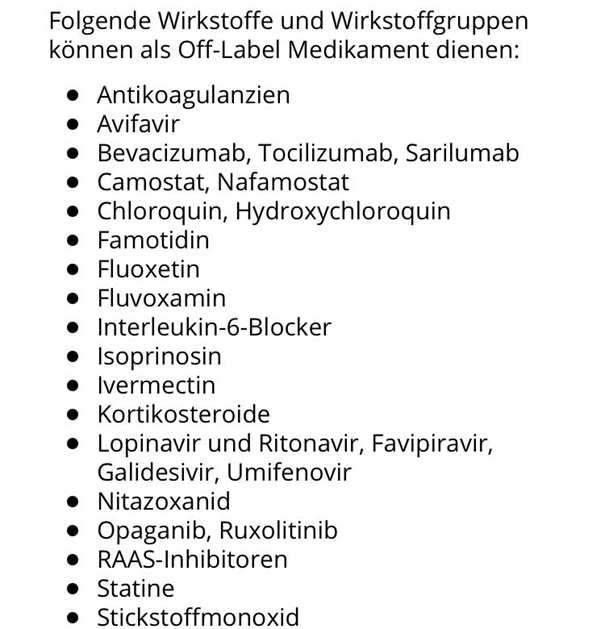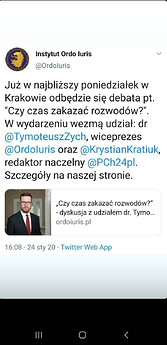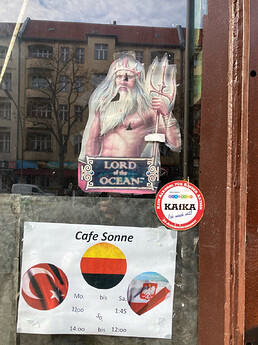Let’s talk to @ivan about what’s going on with the Worldbuilding so we can link up efforts!
OK, we’ll do Friday at 17 CET with @MariaEuler. 2021-02-19T16:00:00Z → 2021-02-19T16:30:00Z
Zoom Link here:
sure, what in particular would you like to know?
we could schedule a call for Friday or next week and you could introduce us to the event — do you have availability? Looking forward 
Friday (aside 11-12 CET) I am flexible, so feel free to schedule it as it works best for you 
@Jan @amelia @Richard @wojt @Jirka_Kocian
With @jitka.kralova and @Djan we have put together a research outline/ a list of joint research themes that we think might come up in our respective fieldworks as we try to grasp how/what/why populist tendencies are internalized. Let us know what you think, we are looking forward to our first interviews.
Individual fieldworks-wise, we are pretty much sticking to what’s in our initial fieldwork proposals, keeping in mind the themes below. We guess the challenge in the future will be to narrow down out scope so it feeds a bit more into the comparative analysis.
Field Basics
- Research group: ??? people experiencing hardship, uncertainty, insecurity, mistrust in relation to the current political/economic/social context???
Suggestion: Do you mean something like? “(Dis-)Trust, (Mis-)Representation, and (In-)Security : A cross-border qualitative study on the rise of populist sentiments in Czechia, Germany, and Poland”
→ Here the common denominator could be that our questions revolve around the 3 core themes in the title. Ideally we could also find a way to focus on similar target groups (not a most of course, just a way to add more comparative clout).
-
Participant observation:
- Observing public and private spaces of discussion regarding general wellbeing, state conditions, populism etc, following ethical guidelines.
- Saving examples of visual expression, such as memes, cartoons, YT video etc - might prove a user to pick the ER hivemind later on.
- Making notes of relevant discussion themes that seem to be of interest to the study.
-
Network publics mapping, as we fieldwork: to understand various spaces where people engage in online discussion in Germany/Czechia/Poland, also to keep notes where we meet our respective interviewees, but mainly to understand the structure of the network public sphere.
- Eg.: IG, Tiktok, Twitter, Facebook groups or pages, imageboards, local fora, local governmental webpages.
-
Interviews:
- narrative, autobiographical, oriented to capture interviewee’s journey to his current political worldview and their current living situation
- focused on catching temporal
-
EdgeRyders use:
- Progress threads for each country in their respective languages with content directed at a given ER community.
- Progress threads for each country in English directed at the POPREBEL team, rather mostly available to everybody else at the ER platform - stuff for the team only we post in other dedicated threads.
- Tell-form use,
- Inviting research participants after the interview,
- Perhaps inviting at once a number of previously interviewed research participants to kick start a discussion a la focus groups.
- Polls later on too,
- Fieldwork takeaways as a discussion starting point.
- would be great to learn from ER team what they “expect” interview volume wise…this would enable us to see what is feasible + the number on interviews, and their lengt (but this might be hard to predict)
Research themes
- “Anti-intellectualism”, or rather anti-elitism - a critique of the social status quo, intellectual, economic, political elites, more broadly - people currently in power, class divisions
- Q: When it comes to Covid vaccines, whom do you trust?
- Q: What do you do when you get sick? Do you choose private or public healthcare?
- Are those in power connected to the needs of citizens?
- Information-scape, media-scape: propensity towards disinformation/conspiracy myths, what information sources, including what/if following any “agents of change” - celebrities, advocates, activists, public figures,
- Q: How do you keep informed on what’s going on currently in your locality/region/country/abroad?
- Do you follow what’s happening in politics? What interests you?
- How would you describe your relation/consumption of (mainstream) media? Do you trust mainstream media (this would have to be adopted/tailored to country context given vastly different media landscape)? Or, what media do you find trustworthy?
- What do you think about media reportage those days?
- Retrotopia:
Was it better in the past, or is it better now?
When you think of tomorrow and the future of your family/country/personal situation, what do you think about?
When you think of the past/your past of your family/country/personal situation, what do you think about? How does that compare to how you feel today? - Myth-building, nation-building, ethnic community building.
- Imaginaries on belonging and the status quo.
- Europe and European union: Europeanisation, Euroscepticism:
- Q: What should be the role of the EU?
- Q: Was joining the EU a positive thing? What did you think of them? What do you think now? What about various issues related to it, such as the EUR zone, or joint policies?
- Do you feel European?
- How do decisions made in Brussels affect you?
- Globalisation and cosmopolitanism:
- Q: Where should your country should be on the world stage? → A feeling of inferiority, superiority.
- Q: Where do you feel at home? Where would you rather live?
- What do you think about countries working together in unions? Are countries better off, if they look inwards/take care of themselves?
- Migration, refugee crisis, the idea of the nation-state, nation and ethnicity (“Poland for Poles” etc), superiority of nations, the right to a land, human rights
- Q: Who is Polish, Czech, German?
- Q: Who can be Polish? Who can become Polish? What about migrants? Refugees? Who belongs here? Can people not born in your country, without parents from your country, become citizens of your country? (make clear that it is not a legal question) (nativism)
- Economic or political turning points: how events such as transformation/transition in the 1990s or the crisis in 2008, influenced the interviewee’s life - to generally keep a lookout at how the big events are remembered, and if so, in what context,
- Also - climate change.
- influx of asylum seekers 2014-
- Issues of representation
- Q: Opinions on public services, state aid, social welfare system, during and before covid:
- When was better? Is it better now?
- What was wrong, what changed?
- What services should be public, what private? Why?
- What has the Coronavirus pandemic revealed to you/made obvious?
- Q: Views on the current political system, and in general on democracy, neoliberalism, capitalism, communism:
- Do you vote?
- How does the job market look like?
- What should be the role of the state? What should be the relationship between the state and the market? What should be the taxes (low/high)?
- How important is it to you, that politicians act in a way that protects what the majority wants?/Should the politicians do what most people want?
- Is it ok to bend the law/rules, if that means guaranteeing the will of the people?
- Q: The cupboard state
- Q: Opinions on public services, state aid, social welfare system, during and before covid:
- Critical approach to modernity, progress, Westernization:
- Q about technology, digitalization, communication speeding up, looking for life on Mars.
- Q: In which direction should we modernize?
- Q: Is more technology good or bad? What role should it play in society?
- Q: What are good examples of change? Where should we look up to?
- Q: Does the Internet make our voices more heard or not, or is there no difference?
- Values: liberal or traditional?
- Views on gender roles, women’s rights, reproductive, LGBTQ rights, gender neutrality, and language reforms.
- Q:
- Views on tradition and change:
- Views on collective notions of freedom - a right to free speech, a right to choose medical treatments (anti-vaxxers, alt-med, anti-mask wearing, anti-lockdown), general feeling of agency, possibilities, autocratic state, thought censorship…
- Views on gender roles, women’s rights, reproductive, LGBTQ rights, gender neutrality, and language reforms.
- Religion:
- Q: Do you have any religious beliefs? If yes, what?
- Q: What should be the relationship between the church and the state?
- Community and family: family values, local sense of belonging, the strength of various social ties.
- Covid crisis:
- Q: Did you need some kind of support since the pandemic started?
- Q: If so, where did you seek it? State support or community support, or maybe online on your own, or maybe digital community of strangers (aka forum or FB group)?
- What do you think, what will happen to the economy? And our pre-pandemic lifestyle? → Looking for a mention of insecurity, uncertainty
Interview structure
- Starting of with a current event that somehow relates to one of the themes?
→ Questions that everyone can relate to regarding the pandemic and personal well being are a good ice breaker/trust builder. And they also reveal interesting notions, and give informant chance to position themselves early on, i.e. ethnographers can foreshadow a bit
- Going in broader to understand the general worldview of the interviewee, trying to understand how was it shaped.
- What is the interviewee critical of? What policies?
thanks a lot @Maniamana! Just a little backgrounder article on the Retrotopia angle/idea. Since conspiracy myths have increasingly been driving far right discourse, and the myths often revolve around notions of imagined restoration of a glorious past + advocating for the reinstallation of former “legitimate” governments/political regimes (f.ex Reichsbürger in Germany , and now also Qanon with its newest March 4 //1871 twist,), we thought it could be an interesting angle to add.
Retrotopia, (concept from Zygmunt Bauman), is the outcome of a dramatic U-turn in the public mindset: “from investing public hopes of improvement in the uncertain and ever-too-obviously un-trustworthy future, to re-investing them in the vaguely remembered past, valued for its assumed stability and so trustworthiness”
Does ’Retrotopia’ explain the Rise of the Radical Right? – Centre for Analysis of the Radical Right.
This is very impressive! Well done to all of you.
We will, of course, discuss this in today’s meeting but there are two things I’d like to see more of: (i) perceptions of threat (to the desired conceptualisations of the nation, society, state, etc.) and (ii) gender/sexuality (there is just one question on this). Both of these issues could certainly emerge from interviews on the various topics but I’d like them to be research themes in their own right.
thanks! My preliminary observations of various chat groups and respective discourse(s) confirm your sentiment re emergence of gender/sexuality issues from topics that touch on lockdown measures, mask wearing, vaccinations, “immunity through fitness”, “strength vs weakness” narratives, thought censorship + refutation of gender and/or ridicule of gender issues, evaluation of non-male elites, views on family etc.
This includes language being used, narratives being fed into, and disseminated icongraphy/visual content.
But we can certainly find ways to also add more focused gender/sexuality themes
Hi @amelia, I might have missed it, but is the presentation you gave during out training on Wednesday (24th) uploaded somewhere on the platform? Thanks 
Hi Jitka
@Jirka_Kocian recommended this transcription software for Czech: UWebASR - University of West Bohemia : Automatic Speech Recognition Service
Best wishes
Richard
Thanks Richard, I already tried this link, which Jiri shared with me, but it hasn’t been working very well. I’ll check about it with @Jirka_Kocian during our meeting this week.
The problem is usually audio quality, but let us see what can we do about it…
@amelia, @Richard, @jitka.kralova
This is a nice repository of various ASR tools (I already shared the German tip with Djan), for Polish and Czech, they link only to the very limited google public services:(, but English seems to have a few interesting options (You should be able to log in via most Uni affiliations)
https://clarin.phonetik.uni-muenchen.de/BASWebServices/interface/ASR
And in addition, here they have a free audio enhancement tool for speech, take a look primarily at noise reduction and force noise range parameters:
Dear all, this is a shortish summary of our back-end discussions regarding our respective fieldworks, and in general, populism.
Thoughts on populism:
-
We tuned in to an interview with Cas Mudde reg. the rise of populism in Netherlands (HERE), and more broadly, the world, and we also keep looking for various commentaries regarding populism. We in particular discussed the relationship between nativism and populism, with nativism being a thickening agent, encouraging populist policies. Populism is a top-down category, the people vs the elites, and populist outlets are not necessarily racist/xenophobic, while nativism is basically othering around a notion of the nation, “us” vs “outsiders”.
(Radical) right-wing populism fashioned by thickening thin populism with nativism (homogenous state, non-native elements are threat) and authoritarianism (belief in a strictly ordered society, “law and order”. -
As dominant discourses tend to perceive populism as a right-wing phenomenon, we try to distance ourselves from such presumptions and listen to different understandings of populism, including grass-roots perception of its rise in Europe with an open approach. In that regard we attended an online discussion on the Dipesh Chakraborty’s book “Provincionalizing Europe” that was celebrating the anniversary of its publication. There was an interesting exchange of thought (recording here) on the post-colonial theory, with great comments from Ewa Domańska (UJ) and Achille Mbembe.
Following anti-restriction protests: In Germany: Demos von Corona-Leugnern und Rechten: Zwölf Polizisten in Dresden verletzt – Politiker fordern Konsequenzen, Niemcy walczą z pandemią i szczepią się na COVID-19 - OKO.press - OKO.press
Tensions reg. minorities:
Germany: Germany's intelligence agencies have failed to tackle rightwing violence for too long | Peter Kuras | The Guardian
One of the reasons could be re attacks:who to attack? 97% homogeneous society, Jewish population growing again, but extremely small. All attacks of the right are directed against ethnic/religious minorities here in Germany.
Poland: from the outside it appears that the biggest threat of right/populists in Poland seem to be women/members of the LGBTQ community.
Djan: „what reason should people have to use dangerous and unpopular methods to achieve goals, if they can achieve those goals through mainstream parties?“; Traditional Church(values),protection of nuclear family, somewhat nativist, … Isn’t that well represented/defended by PiS? Far right is very strong in Poland, but the extreme right isn’t
Mania: I would agree with that, although it depends how we define the extreme right. The usual staff is somewhat in the mainstream, and the extremism here is often represented by extremely libertarian views and related conspiracy theories. Like those Twitter reactions to the OKO’s comment on the government’s plan to raise a tax free income from 7000 to 30000 as a part of the New Order (ha-ha) pandemic economic recovery plan.
Both accounts seem to be Russian trolls, but the narrative they spread is anti-German, like they’re saying, German’s won’t allow such economic solutions in Poland (?!), neither will Russians, and Poland’s a negro (murzyn) of both.
Djan: Far-right, from Cas Mudde’s perspective, operates within the system, while the extreme right goes beyond the status-quo, and against it, with p.e. terrorist attacks.
Reg. the issue: Kwota wolna 30 tys. zł? PiS skoczyłby na głowę do płytkiej wody OKO.press - OKO.press
“One year covid” celebration in czech as well. There were lots of attempts at protests and marches in different cities, but because we are in big trouble in terms of covid numbers in the hospitals, the police is repressing them quite strongly… so as an outcome, there is quite a strong villager-led ACAB movement emerging haha. And again, the people taking the streets are framing themselves very much outside of left and right spectrum, calling for the current gov. resignation, calling to the ‘rule of law’, comparing the situation to the former communist regime and of course all the covidspiracy narratives.
AstraZeneca controversies in Europe – discussing the consequences for the vaccine refusal rise - interesting that western countries in Europe, which are perceived as more risk averse (there are also some studies) have postponed giving Astra, while east European countries have not
Vaccine passes - creating more controversy, bringing in more divide. P.e. taking away fundamental rights is being commonly accepted, and justified in DE because of the pandemic, but those vaccinated might be “given” those rights back.
(Technocratic?) populist politics in Czech reg. the use of veterinary medication on humans, Jitka:" everyone is trying to find the magic cure for covid, its like a race for who is going to discover it, plus the populists are using it as part of their narrative that the eu and govs have conspired against people.
What’s been also a huge debate among the conspirators is this strong push for the meds like Isoprinosine, invermektin… has this been the same in Germany and Poland? someone from a right wing populist party on the radio just said: “we know very well that the polish are following the restrictions much less than the Czechs, but they have less deaths because they got Isoprinosine available in the pharmacy”. Yes in czech, the funny thing is that all the official health authorities said it shouldnt be sold or introduced because the medical evidence is so weak, but our populist prime minister jsut approved it a week ago because he saw that people on facebook were talking about it.
Mania: There were some voices but the last years, now the discussion circulates around vaccinations mostly.
*Djan:*These are the off label meds that have not been widely approved but have been here and there used in experimental treatment settings in GER.

Yet:
Russian propaganda for Czech Sputnik page also picked it up: Djan: https://cz.sputniknews.com/slovensko/2021022713253242-my-jsme-jeste-asi-nenaplnili-kvoty-zemrelych-desivy-pohled-na-to-co-se-deje-na-slovensku/
Jitka: Czech president has been so involved in getting the Sputnik. He asked the prime minister to fire the health minister and the minister of foreign affairs, because they don’t want to bring sputnik to Czech.
Ordo Juris and extreme conservatives in Poland Mania: why othering narratives instead of positive inclusive narratives in social campaigns of the conveservatives, that somehow get picked up by PiS, with exception of very radical issues like banning divorces.
Sabmyk conspiracy - to have eyes out on it.
The role of SM for extremism to get to the young
And Telegram
Masculinity and capitalism
*Mania:*Narratives, both textual and visual, of success vs failure, esp. in the times of C-19, come out in the online fieldwork in Poland, but such topics are also present in Czech (Jitka)
See: Undoing the Demos: Neoliberalism’s Stealth Revolution, W. Brown
Randomness





